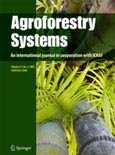Wild meat plays a crucial role in the food security and cash income of subsistence hunters in the tropics and subtropics in Africa, South America, and SE Asia (Coad et al., 2019; Fa et al., 2022). This meat is regularly traded in markets in many towns and cities (see Fa et al., 2019). In Nigeria, the amount of meat sold from most species crashed dramatically after the Ebola virus outbreak in 2014, highlighting the awareness of the general public of a link between disease risk and wild meat (Akani et al., 2015; Funk et al., 2021). The opportunities for zoonotic spill-over have increased in parallel with the increase of the intensity and extent of bushmeat trade over the last decades (Karesh & Noble, 2009). The report by UNEP, International Livestock Research Institute (2020) on preventing the next pandemic lists increasing human demand for animal protein among seven human-mediated factors as the most likely driving the emergence of zoonotic diseases, which includes wild meat hunting.
Download:
DOI:
https://doi.org/10.1111/csp2.599
Altmetric score:
Dimensions Citation Count:

























